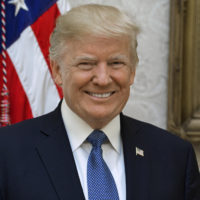Whether Democrat or Republican, most Americans agree that the first Presidential Debate of 2020 was a train wreck.
Given the President’s recent diagnosis of COVID-19, it is unforeseen exactly how the next presidential debates will proceed, and if they will be under control.
In the first Vice Presidential debate between current sitting Vice President Mike Pence and Biden running mate Kamala Harris, Moderator Susan Page began the night by setting a straight-forward standard for both candidates. “We want a debate that is lively but Americans also deserve a discussion that is civil,” Page said.
Thankfully, that debate turned out to be much more organized and “civil” in contrast to the Presidential debate. President Trump continuously interrupted Biden essentially every time Moderator Chris Wallace asked Biden a question.
This issue of interrupting the other opponent is serious because it denies viewers the right to hear each candidate’s stance on important topics pertaining to the country, which is absolutely necessary in order to make an informed decision on election day. After the debate, many reports noted the possibility of muting the other opponent’s microphone when their time is up to avoid this problem.
On Thursday, October 1, news spread about President Trump’s positive Coronavirus diagnosis. Not only has the president said multiple times that the virus would “go away,” but he recently claimed his diagnosis was “a blessing from God,” according to a report by Reuters.
Since The Commission on Presidential Debates announced their decision to change the format of the next debate set for October 15 into a virtual debate, so far President Trump has opted out of the idea, telling Fox Business, “I’m not going to waste my time in a virtual debate.” Trump went on to reveal the real reason why he isn’t going to do a virtual debate, claiming, “they cut you off whenever they want.”
It is highly unlikely that the moderators would cut the candidates off without reason, but this change might’ve been able to provide more structure and avoid rambling outside the time slots provided.
Most would say having a debate virtually instead of face-to-face due to health precautions is not a “waste of time,” but rather an extremely important way to hold onto a connection with voters. On top of that, virtual debates and in-person debates would appear quite similar to voters watching it on tv. Trump may be desperately trying to avoid the restrictions that come with virtual communication.
We all know the feeling when we feel the need to interject or ask a question while another person is speaking during a Zoom call. Unlike being face to face, there is a bit of a delay when another person starts talking, and before you know it, the whole conversation is choppy, awkward and jumbled up. President Trump would be much more restricted in a virtual setting, allowing Biden to speak more and convey his message to voters.
Photo courtesy of the White House




